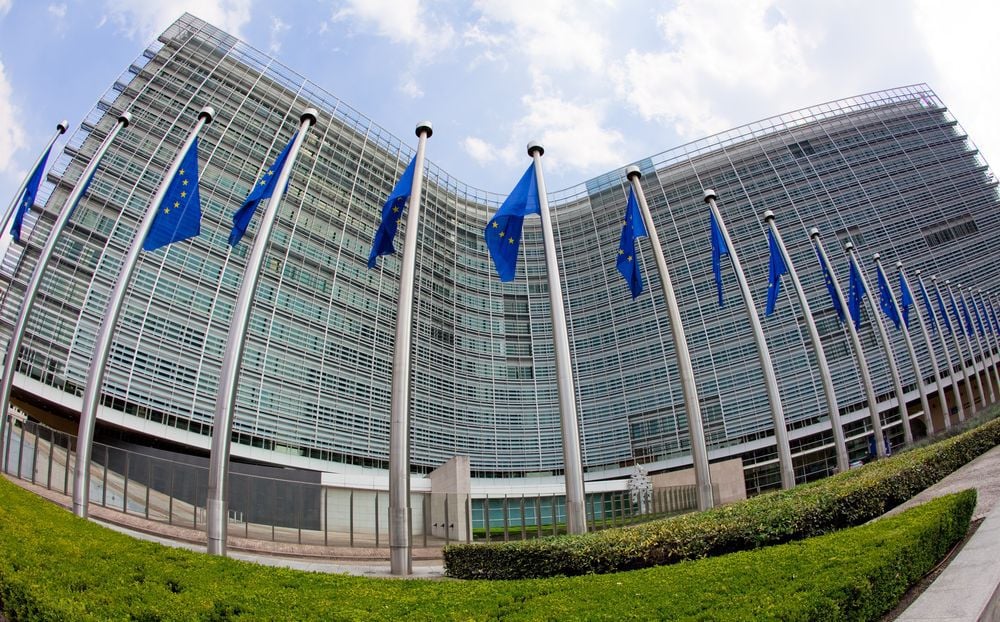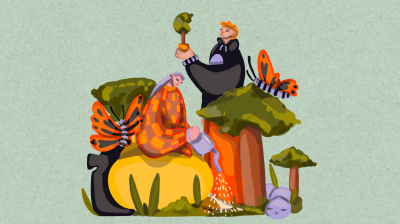Safety in well-organised numbers: The future of the EU
Looking at some of the challenges facing the European Union.

With the effects of the economic crisis of 2008 still very much at large, the future of the EU remains in flux. It is almost impossible to predict the events of next month, let alone next year. But, beyond the Union’s borders, a host of global events are in motion, which will undoubtedly have an effect on the EU, for, better or worse. The Ukraine crisis, the rise of ISIS, and the global oil market slump are but some of the challenges currently facing the Union, each of them having a variety of trajectories which they may take.
These problems are global in nature, and many argue that the EU can only effectively address these issues as a cohesive whole. The EU then needs to decide which path to take: a loose confederation of sovereign members; or an integrated super state, on par with the US and the emergent BRICS. If the EU is to effectively tackle the various crises that are erupting around the world, it needs to display an as-of-yet unseen level of solidarity and integration. A more uniform position would have to be taken on crises such as Ukraine, where EU participation has been overshadowed by unilateral actions of Angela Merkel and Francois Hollande. It should be the EU's high representative, Frederica Mogherini, sitting at the negotiating table, if the EU is to have a united and strengthened stance on issues so close to its borders.
Civilian vs. Military Power
Although its membership includes 3 of the top 10 martial powers in the world, the EU lacks any real competence in the area of defence. Militarily, the EU is far outstripped in its capability by the other global players, but this may have worked to its advantage thus far. Without teeth, the EU has been able to peacefully expand across the continent, rousing relatively little antagonism from
Russia, although this has changed in recent years as the EU's expansion has moved further east.
The question must then be asked: would the EU's benevolent international persona, embodied through its numerous peacekeeping missions, be undermined by a bulked up military? There are many that believe the EU would lose its altruistic charm if it had a few aircraft carriers in its pocket. Yet there are those who see military capacity as essential for effective foreign policy.
Infrastructure supporting missions like EULEX Kosovo may be promoting good legal practice in the region, but the EU was unable to conduct effective peacekeeping operations in the 1990s, with the shame of the Srebrenica massacre still haunting EU foreign policy today. It would seem then that EU external action is heavily reliant on the military capacity of NATO and its American allies.
This top-heavy partnership has survived so far, but as the US looks towards its interests in Asia, the EU must become more reliant on its own capacity as a military actor. This is not to say that the US won't come to the aid of its NATO allies, but if another Srebrenica-like incident were to occur, the
US may not have the local capacity, nor interest, to lend a hand.
Energy Security
The current oil crisis has added a degree of saliency to an issue upon which the Union was founded: energy. The EU has diversified since its origins as the Coal and Steel Community, but fossil fuels still constitute a huge majority of energy consumption in the region, with the member states racking up an energy bill of €1 billion a day. The source of this foreign energy is also a cause for concern. That Russia supplies a quarter of the EU's gas needs has had clear implications for the Unions dealings with Putin, made all the more poignant by the recent Ukraine crisis. The EU has recognised that the negotiating table will turn in its favour if it can get escape the dependency of Russian gas, and has devised numerous strategies to address this objective.
With local oil and gas in short supply, and the unpopularity of nuclear energy, the EU must turn to renewable sources for its energy needs. A firm favourite so far is wind power, with Denmark leading in the EU with over 39% of its energy needs derived from wind turbines, and 50% targeted for 2020. Of course, 100% clean energy is still distant goal, and preparation for effective use of fossil fuels must still be a priority for the union. A more fluid gas grid, where the warm winter surplus of one member state may quickly be pumped to another, less fortunate state, is already underway with a number of pipelines to be completed by 2017. This will greatly enhance energy coordination until renewable sources become more of a staple. Through a concerted effort to diversify its sources and connect stored supplies, the EU then aims to ensure energy self sufficiency and maintain its status as a champion of clean energy.
Age of Contingency
Francis Fukuyama predicted that the end of the Cold War would precipitate 'the end of history', with the antagonistic annuls of the world concluding with the emergent dominance of western liberal democracies. The past 20 years have shown the folly of Fukuyama's assertion, with global politics as uncertain now as it ever was. The EU cannot foresee the many possible challenges that it will face in the years to come, but it can make a pretty good guess. Energy has always been a recurring agenda priority, and pursuing a strong clean energy strategy can only help to address this concern. Establishing the type of power that the EU should wield is a more opaque decision process, with the key question being whether the EU's civilian mission mandate would be superseded or enhanced by a stronger military. On the question of integration, stronger union is not without its opposition, but only with a more cohesive partnership can firm and consistent action on the world stage be achieved.
This article was published as part of an European writing competition on the theme: So Similar, So Different, So European. You can read other entries here.






